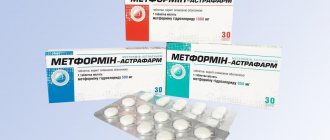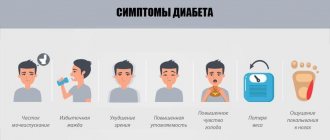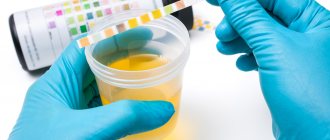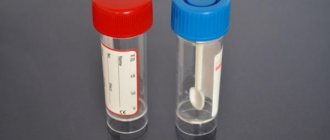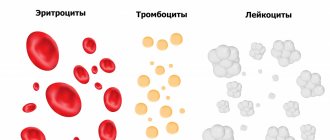Best before date
The results of different types of laboratory diagnostics have different shelf life. Blood and urine tests, which are usually ordered together, last for different periods.
General blood analysis
A clinical blood test, which is better known as a “general blood test,” is the main test for identifying most pathologies. The results are considered valid for two weeks.
Urine
Along with a general blood test, it is considered a standard laboratory procedure used to determine pathological processes in the human body.
The result of a general urine test is stored for 10 days.
It should also be clarified that the indicators will be correct if the study was carried out within 2 hours after fluid collection.
Kala
Such an analysis is valid for ten days. If this period has expired, a secondary study is necessary.
For enterobiasis
The time for submitting scrapings is strictly limited and should not exceed 2 hours. If the established rules are violated, there is a high risk of the material being uninformative or the result being inaccurate, which can be announced just a day after delivery. Experts consider the result of scraping for enterobiasis to be reliable for only 10 days.
For HIV and hepatitis
A biochemical blood test for HIV and hepatitis is valid within two weeks from the date of delivery. When researching for the purpose of obtaining a medical record, the validity of the results is exactly 1 year.
During pregnancy or before surgery, such tests are not taken into account - you will need to take them again.
A blood test for antibodies to HIV is valid for 6 months, since it is impossible to detect the virus before this period.
But this fact does not deprive a person of the right to undergo repeated testing at any time.
How long do clinics store results?
Paper forms with the results of the tests performed (they can also be photographs, radiographs, scans, etc.) are handed to the patient, after which they go to the attending physician, who glues them to the medical record.
Storage of research results is required for further treatment, as well as for litigation between doctors and patients (medical institutions). They are the basis for diagnosis and proof that one of the parties to the conflict is right. That is why the storage period for tests for hospitalization, outpatient treatment and other types of medical care must be at least 5 years. There is a list of documents dated 08/15/1988 that must be kept for a certain time. This is necessary for presentation in court (if necessary) and for determining the dynamics of the body condition of patients undergoing outpatient treatment.
If media containing research reports remain unclaimed by the patient or his attending physician, they are destroyed. The shelf life of analyzes in these cases is 1 month.
Special cases and validity period
Patients who are scheduled to be hospitalized in a medical facility or undergo surgery are provided with a list of necessary studies. Each result and even certificate has its own expiration date.
Before surgery
The preparatory stage for surgery involves mandatory laboratory diagnostics. A successful result often depends on how timely the tests are taken.
Before any surgical intervention, the patient must undergo a number of generally accepted examinations. These procedures allow you to assess the degree of readiness of the human body, minimize possible risks of complications, determine treatment tactics and select the best anesthesia option.
A standard list of preoperative tests looks something like this:
- General blood and urine analysis.
- Biochemical blood test.
- Determination of blood group and Rh factor.
- Analysis for infectious diseases - syphilis, hepatitis B and C, HIV.
- Coagulogram.
- ECG.
- Fluorography or x-ray of the chest organs.
The results of all of the above tests are considered valid for two weeks, except for fluorography and x-rays - they are valid for a whole year.
If the operation has a narrow focus and standard data is not enough, the doctor may prescribe additional studies. For example, visit a gynecologist or dentist before surgery. Referrals to such doctors are usually written by a therapist, who also provides an opinion. The validity period of a therapist’s report with positive test results is no more than 1 week.
For hospitalization
Before being admitted to a medical facility, every person worries about whether he forgot to take something. Sometimes the problem of “overdue” tests arises: they were done a month ago, but must be submitted to the attending physician now.
The patient must have the results of the following studies on hand during hospitalization:
- General blood and urine test (valid for 10 days).
- Biochemical blood test and coagulogram (1 month).
- ECG (1 month).
- X-ray of the chest organs (fluorography) (6 months).
- External respiration function, or abbreviated respiratory function – with a diagnosis of “bronchial asthma” (1 month).
- Feces for helminth eggs (2 weeks).
List of necessary tests and examinations
Attention!
All patients admitted to the Center for hospitalization must have
the results of a coronavirus (COVID-19) test
in accordance with Decree No. 5 of 04/05/2020 of the Chief State Sanitary Doctor for St. Petersburg (open the Decree in pdf format).
The shelf life of the test is no more than 7 days from the date of the test. A swab from the nasal cavity and oropharynx
is taken and an RNA PCR analysis of the coronavirus SARS-CoV-2 (COVID-19) is taken.
The form with the result of the coronavirus (COVID-19) test must be presented in printed form and certified by the seal
of the medical institution where the test was performed.
After vaccination against the new coronavirus infection
Hospitalization is possible no earlier than 30 days after vaccination.
Patients who have been vaccinated against a new coronavirus infection
must undergo PCR tests, regardless of antibody titer, before the formation of population immunity.
After suffering from a new coronavirus infection
Hospitalization is possible no earlier than 6 weeks after recovery. The date of recovery is considered the date of receipt of the first negative PCR test.
In accordance with the Decree of the Government of the Russian Federation No. 432 dated 04/03/2020 (open the Decree in pdf format), planned specialized
,
including high-tech medical care
at the Clinic of High Medical Technologies named after.
N.I. Pirogov is carried out only by referral No. 057/U-04
of the attending physician at the place of residence, providing primary health care in a medical organization chosen by the citizen to receive primary health care, or by referral issued by the executive authority of the subject Russian Federation in the field of health care.
Hospitalization is carried out at the Clinic of High Medical Technologies named after.
N.I. Pirogov (clinic, hospital) of St. Petersburg State University. When hospitalized, you must
have with you the original of the referral No. 057/U-04
, certified by the blue seal of the medical institution that issued the referral.
1.
A blood test
(given in the morning, on an empty stomach):
- clinical analysis - ESR - blood type and Rh factor - C-reactive protein - glucose - ALT - AST - total bilirubin - creatinine - urea - ionized calcium - calcitonin - parathyroid hormone - coagulogram (PTI, INR, APTT) - HBsAg (marker hepatitis B) - HCV (marker of hepatitis C) - antibodies to HIV - total antibodies (Ig M, G) to Treponema pallidum (syphilis) - TSH, T4 free, T3 free.
Tests are valid for 30 days. Tests for HBsAg, HCV, antibodies to HIV, antibodies to Tr. pallidum, blood type and Rh factor - valid for 3 months.
2.
General urine test
- shelf life 30 days.
3. Instrumental studies
:
— ECG (electrocardiography) — shelf life 1 month. Please note: the ECG must be provided in the form of a report with film; - echocardiography (mandatory for all patients over 50 years of age, as well as at an earlier age, subject to the presence of cardiac pathology) - shelf life 3 months; - fluorography or x-ray of the lungs - shelf life 6 months.
Tests, ECG, echocardiography can be performed at your place of residence, in any institution.
4. Consultations with specialists
Patients over 50 years of age must undergo a consultation with a neurologist (with duplex examination of the brachiocephalic arteries) and a cardiologist to decide on the possibility of surgical intervention and the amount of necessary preparation and examination.
5. Consultation of cytological and histological preparations
If there are nodules in the thyroid gland or lymph nodes affected by a tumor, it is necessary, BEFORE HOSPITALIZATION, to obtain a consultation on cytological preparations in the morphology laboratory of the North-Western Center for Endocrinology and Endocrine Surgery to confirm and possibly clarify the diagnosis. This examination is carried out for a fee. If there is no drug consultation at the time of hospitalization, this examination will need to be completed on the day of admission, also for a fee. The need for drug consultation is due to the fact that, according to statistics from our center, in 60% of cases the consultation changes or significantly supplements the diagnosis. Cytological preparations can also be sent by mail, prior to admission to the center (through the online consultation system - consultation by Vorobyov S.L., detailed instructions for sending cytological glass preparations are at the link).
If you have previously had surgery, you need to obtain histological preparations of the removed tumor and consult them in the morphology laboratory of the Endocrinology Center. This consultation is carried out for a fee in order to confirm the patient’s diagnosis.
When hospitalized, provide the result
review of cytological/histological slides or the result of a thyroid biopsy performed in our clinic must be
printed out !
6. Consultation with a therapist
During hospitalization at the Northwestern Center for Endocrinology and Endocrine Surgery of the High Medical Technologies Clinic named after. N.I. Pirogov St. Petersburg State University, in addition to performing all the tests and examinations from the list presented below, you need to obtain a physician’s opinion on the possibility of surgical intervention. Read more about why you need to be examined by a therapist before hospitalization.
7.
If you have previously undergone surgical interventions ,
you must bring a discharge summary and histological examination after previous operations to hospitalization. Also take discharge summaries after hospitalizations, if you have previously undergone treatment.
| Analyzes in St. Petersburg If it is inconvenient for you to perform tests in a clinic at your place of residence and waste time in queues, you can perform all the necessary laboratory tests and an electrocardiogram in 2 days in the departments of the endocrinology center in St. Petersburg. Tests must be taken on an empty stomach, before 11 o'clock in the afternoon. Research is carried out by the laboratory of the North-West Center for Endocrinology and Endocrine Surgery using the latest equipment from leading global manufacturers, ensuring high quality diagnostics. More information about the center's laboratory and testing The examination is carried out in the departments of the center: - Petrograd branch: Kronverksky pr., 31 (200 meters from the Gorkovskaya metro station, from 7.30 to 20.00, seven days a week, phone (812) 498-10-30); — Primorsky branch: st. Savushkina, 124, bldg. 1 (250 meters to the right from the Begovaya metro station, from 7.00 to 21.00 (weekdays), from 7.00 to 19.00 (weekends), telephone). !Attention! Promotion! When taking Code Study name Cost 416 Clinical blood test - 410 rub. |
If you have gastritis or peptic ulcer
, as well as all patients with
primary and secondary hyperparathyroidism,
it is necessary to perform fibrogastroduodenoscopy - shelf life 3 months.
Patients with primary hyperparathyroidism
To localize a parathyroid adenoma, it is necessary to perform scintigraphy of the parathyroid glands (parathyroid gland scan with Technetril, SestaMIBI scan). If for some reason the scintigraphy conclusion is uninformative, a computed tomography scan of the neck organs with bolus contrast enhancement is required.
Patients with papillary thyroid cancer
it is necessary to perform a computed tomography scan of the chest (optimally using a multislice tomograph with 64 or 128 slices; in St. Petersburg you can sign up for the study by calling 676-25-25 from 8 to 21 hours).
Patients with medullary thyroid cancer
Before surgery, the following studies should be performed: - analysis of 24-hour urine for metanephrines; - computed tomography of the chest and abdominal cavity.
ATTENTION!
The patient must be admitted for hospitalization to the Center for Endocrinology and Endocrine Surgery of the High Medical Technologies Clinic named after. N.I. Pirogov St. Petersburg State University with all the necessary list of research.
Each study on the list is intended for its own purpose, and it is impossible to provide quality treatment to a patient who does not have an examination. At the same time, according to the rules for providing high-tech medical care, the patient’s examination must be fully completed before admission to the clinic. In this regard, in the absence of any of the necessary studies at the time of hospitalization, the date of hospitalization will be postponed and the patient will be offered to perform it on a PAID basis. The turnaround time for analyzes is up to 3 days. We ask you to carefully and responsibly approach the issue of preoperative examination. We ask patients living in other cities (except for the cities of the Leningrad region) not to leave St. Petersburg for 3 days after discharge. This time can be spent in a hotel and spent visiting theaters, museums, or simply relaxing and gaining strength. In the event of complications of the operation (swelling of the suture, increased temperature, the appearance of symptoms of a decrease in the level of calcium in the blood - a feeling of “pins and needles”, numbness, muscle cramps), you will have the opportunity to meet with the attending physician and quickly eliminate the problems that have arisen. Returning to your city too early will not give you such an opportunity. Also, after 3 days, we can give you a histological report and provide our recommendations on tactics for further action.
For patients of the North-Western Endocrinology Center there is a special discount system in new modern apartments
“The Phantom of the Opera”, located within walking distance from the hospital, 100 meters from the Mariinsky Theater and the Conservatory, 500 meters from the cultural space “New Holland”.
When making a booking, use promo code 105
to receive a 10% discount on your stay. Proceed to book a room.
To the section “Hospitalization in the center”
Right to health information
According to Art. 22 “On the fundamentals of protecting the health of citizens in the Russian Federation” of the Federal Law of November 21, 2011 No. 323, every citizen has the right to receive available information about the state of their own health in an accessible form.
In the case of minor citizens and persons recognized as legally incompetent, their legal representatives are allowed to access such information.
An important aspect of treatment is that information about the state of health cannot be communicated to a person against his will. If the prognosis for the development of the disease is unfavorable, information should be presented in a sensitive manner directly to the citizen and his family members. At his own request, the patient has the right to prohibit this and (or) appoint a proxy.
The patient has the right to freely get acquainted with and study medical documentation and seek advice from other specialists on it. At his request, the personnel of the medical institution are obliged to provide copies of documents if they do not affect the interests of a third party.
Information from medical documents constitutes medical confidentiality.
That is why a citizen must be guaranteed the confidentiality of the information transmitted to him. Responsibility is provided for its disclosure in accordance with the legislation of the Russian Federation and its constituent entities.
The shelf life of a medicinal product depends on the type, composition, conditions of its manufacture and use. What is the period and storage conditions for potassium permanganate, Paracetamol, Isofra drops and spray, Levomekol ointment, activated carbon, Otipax, Polydex and Protargol drugs, as well as condoms - we described in separate articles.


